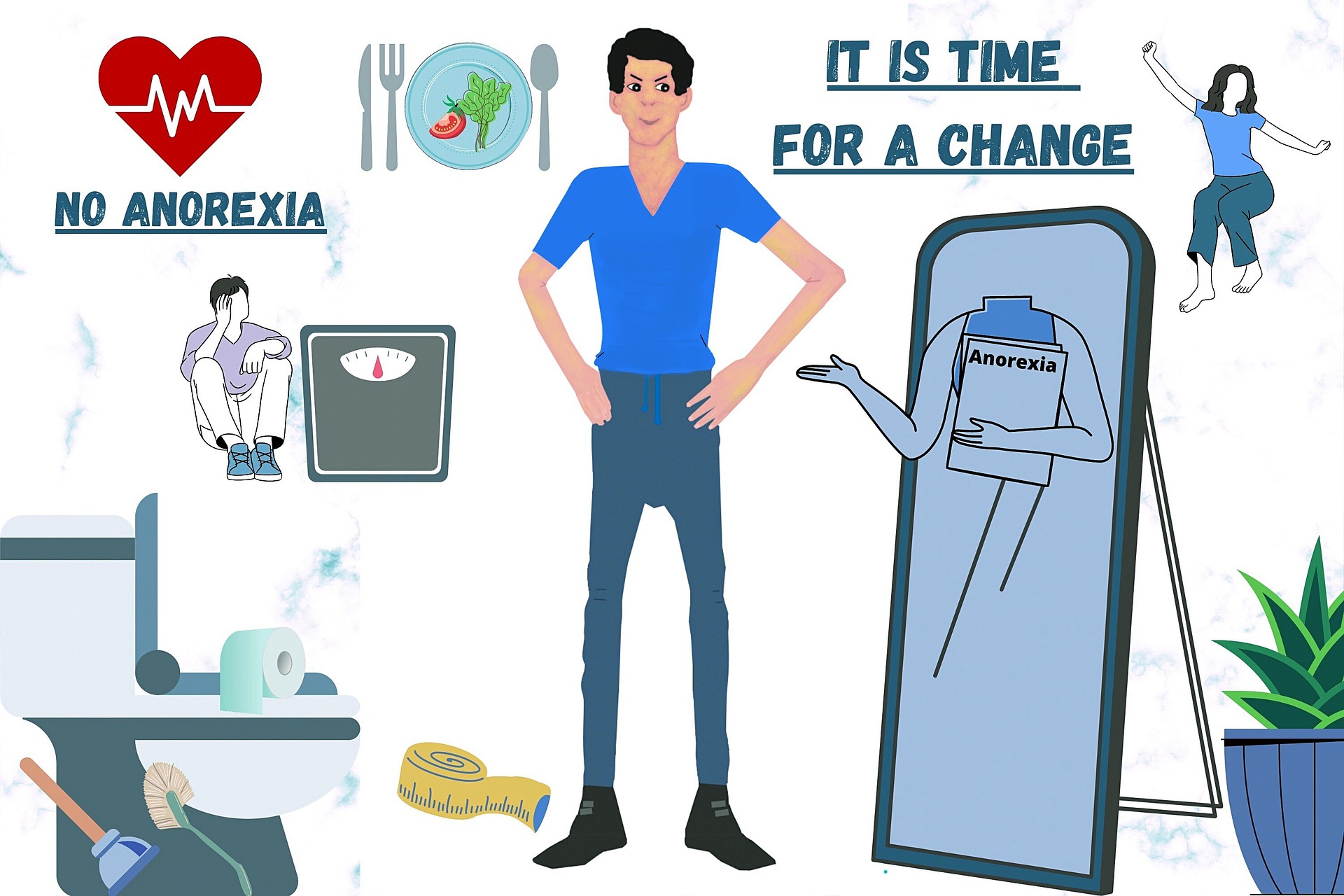Eating Disorders – What Are They?
Eating disorders are extremely serious and can result in significant health issues. Eating disorders are a result of unhealthy eating behaviors accompanied by thoughts and emotions. Recognized as a group of related conditions that results in serious emotional and physical problems. A person can become unusually preoccupied with body weight and food. Distorted perceptions of appearance and low self-image are also signs of an eating disorder. The person can be noticeably underweight, but they still see themselves as being “too fat.”
People of all ages, and genders can develop eating disorders. Often, the disorder will appear in the teen and young-adult years, but can also affect younger children, as well as older adults. Girls are seen as most likely to have an eating disorder. So, parents and/or friends notice the signs or changes in behavior, and they tend to receive treatment more often. Males are also susceptible to eating disorders, but rarely seek help. Studies show that 1 out of 10 people diagnosed are male. In many cases, researchers are finding that eating disorders can run in families. https://www:nanimi.org
Environment contributes to the disorders. Media promotes “thin is beautiful” for women and “bulk up – build those muscles!” for men. Consumers tend to perceive famous role models (male or female) as being successful. This creates an unrealistic perception that you have to be thin or muscular to be successful.
Other factors that can lead to an eating disorder are dieting that goes too far. Life changes such as going to college, divorce, job change, or any emotional event that is extremely stressful. Eating disorders are also seen in athletic sports like gymnastics, runners, wrestlers, and dancers due to the pressure of maintaining a certain weight or physical standard to remain competitive. https://www:nanimi.org
If you are struggling with an eating disorder, please reach out to us at Heart and Mind Counseling. We have trained Therapists to help you navigate this disorder with long-term success.
Types of Eating Disorders:
1. Anorexia Nervosa (2 Forms – Restrictive or Binge-Purge)
2. Bulimia Nervosa
3. BED – Binge Eating Disorder
4. ARFID. Avoidant Restrictive Food Intake Disorder
Anorexia Nervosa (2 Forms – Restrictive or Binge-purge)
a. Both forms – Person perceives themselves to be overweight, even when they are severely underweight (emaciation)
b. Avoid food – restrict, and or limit very small quantities of specific foods
c. Binge-Purge – In addition to food restrictions, the person will also engage in eating large quantities of food in a short time-frame, and then vomit or use laxatives to purge the food.
d. Exercise continuously trying to burn off calories
This is an extremely dangerous condition with very serious health implications compared to other mental health issues. Medical conditions can develop that are the result of starvation. Intervention is crucial. Patients can overcome this eating disorder with help. https://www.nimh.nih.gov/health/topics/eating-disorders
Bulimia Nervosa
a. Person feels “out of control” binging on huge amounts of food in a short time-frame.
b. Attempts to purge the food by forced vomiting, use of laxatives or excessive exercise.
c. Emotionally has low self-esteem associated with body image, guilt from overeating and can isolate from family and friends.
Important to note – the person isn’t necessarily underweight. Some people are normal weight or can be overweight.
There are many impacts to the body as a result of bulimia nervosa. The person can develop decaying teeth from exposure to stomach acids, acid reflux disorder, dehydration, gastrointestinal issues, or electrolyte imbalance (which can lead to stroke or heart attack). https://www.nimh.nih.gov/health/topics/eating-disorders
BED – Binge Eating Disorder
a. No control over eating habits
b. Continues to eat even when not hungry or actually uncomfortably full
c. Eats extremely fast during an episode
d. Eating alone or in secret
e. Feelings of disgust, embarrassed, guilty or depressed about the behavior
People that binge-eat consume large quantities of food and they have no control over eating habits. These episodes are not followed by any form of purging. People with binge-eating disorder usually are overweight, and can be obese. Surprisingly, this is the most common eating disorder in the U.S.
ARFID – Avoidant Restrictive Food Intake Disorder
a. Individual dramatically limits the amount and/or type of food consumed
b. Little or no interest in food
c. Person does not have distorted body image perception or fear of weight gain
d. Develops stomach/abdominal pain, gastrointestinal issues with no other known cause
Also referred to as selective eating disorder. This develops typically in middle childhood, which is earlier than other eating disorders. This can go undetected to parents thinking that their child is a “picky eater” not recognizing or thinking that such a young child could have an eating disorder.
https://www.nimh.nih.gov/health/topics/eating-disorders
Summary
If you or anyone you know might be struggling with an eating disorder, please ask for treatment options. The sooner, the better! The longer the disorder continues, the worse the impact can be on the person’s emotional and physical health. Most people also have other mental health issues in addition to the eating disorder such as anxiety, depression or substance abuse. A trained therapist can create a fully comprehensive treatment plan that addresses all concerns at the same time.
All eating disorders can have serious health implications if left untreated. Research shows delaying treatment results in poorer results. Sadly, less than 20% of people ever seek treatment. Finding help is critical and with the proper treatment, full recovery is possible.
References: NIH, National Institute of Mental Health, https://www:nanimi.org
More About Heart and Mind Counseling
Heart and Mind Counseling is a full-service Telehealth Psychotherapy service helping clients with a broad spectrum of needs in Michigan, Alabama, Colorado, Georgia, Florida, Iowa, Kansas, Massachusetts, New Jersey, Ohio, Pennsylvania, Texas, and Wisconsin.
Dr. Corinne Smorra, LCSW is trained in EMDR and specializes in therapy for patients and families dealing with congenital heart issues, chronic disease, anxiety, depression, organ transplant, end of life, and grief. For more about Dr. Smorra and her research, please visit https://www.linkedin.com/in/dr-corinne-smorra-dsw-msw.lcsw-439a9ba/ or www.heartandmindcounseling.com.
Katie Dines, LCSW is trained in EMDR and specializes in self-esteem, depression, anxiety, substance abuse, inner conflict, relationship issues (domestic abuse, negative relationship patterns).
Kennedy Boulis, LCSW is trained in DBT, does crisis counseling as well as specializing in eating disorders, ADHD, adoption, children, adolescent, family, and adult clients.




